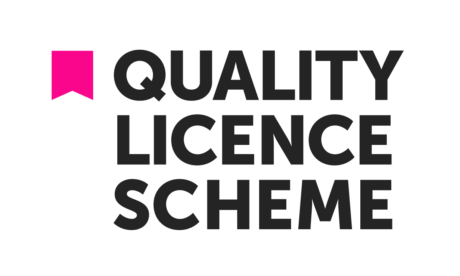Overview
Master the techniques of Gestalt Therapy by enrolling on the Gestalt Therapy Level 2 course.
Gestalt Therapy was first developed by Fritz Perls to help patients by focusing on their present instead of past memories. It is a psychotherapeutic approach that guides the patients to think about the present and to find happiness in the present instead of remembering past experiences. The therapy sometimes helps you to treat past conflicts by role-playing.
The course shows you how to use the Gestalt approach for treating your patients. You will learn the importance of using experiments in therapy sessions and how to work with couples and groups. Finally, the course covers the strategies used by the prominent Gestalt therapist for treating patients, such as the “Empty Chair Technique” or “Repetition and exaggeration” Mindfulness” approach, etc.
Learning Outcomes:
- Understand the foundational concepts and historical background of Gestalt Therapy.
- Analyse the philosophical underpinnings and core principles guiding Gestalt Therapy.
- Develop skills in employing Gestalt Therapy techniques like dream work and the Empty Chair.
- Apply Gestalt methods in various therapeutic settings, including individual and group therapy.
- Critically assess the strengths and limitations of the Gestalt approach in psychotherapy.
Who is the course for?
- Individuals aspiring to deepen their understanding of Gestalt Therapy.
- Mental health practitioners seeking to diversify their therapeutic skills.
- Psychology students interested in exploring varied psychotherapeutic approaches.
- Professionals aiming to incorporate Gestalt principles in their counselling practice.
- Anyone curious about the application of Gestalt Therapy in personal and professional contexts.
Certification
Once you finish the course, you can get a certificate to show your success. The PDF version costs just £3.99, while a printed one is £7.99. If you’d like both, it’s £10. For students outside the UK, there’s an extra £10 for delivery.
Requirements
- This course is available to all learners of all academic backgrounds.
- Learners should be aged 16 or over to undertake the course.
- A strong grasp of English, numeracy, and ICT is necessary for enrolment in this course.
Career Path:
- Psychotherapist: £25,000 – £48,000
- Counsellor: £20,000 – £40,000
- Clinical Psychologist: £31,000 – £87,000
- Mental Health Specialist: £26,000 – £50,000
- Wellness Coach: £20,000 – £60,000
- Group Therapy Facilitator: £24,000 – £45,000
Course Curriculum
| Introduction | |||
| About the Instructor | FREE | 00:03:00 | |
| About the Course | 00:05:00 | ||
| What is Psychotherapy | 00:10:00 | ||
| Introduction to Gestalt Therapy | |||
| What is Gestalt Therapy | 00:09:00 | ||
| The origins of Gestalt Approach | 00:12:00 | ||
| Psychoanalysis & Gestalt approach | 00:09:00 | ||
| Forms of Psychotherapy | 00:11:00 | ||
| Therapeutic Relationship in Gestalt therapy | 00:11:00 | ||
| Philosophy and Principles in Gestalt Therapy | |||
| The ‘Self’ in Gestalt therapy | 00:09:00 | ||
| Gestalt ‘Present’ Awareness | 00:10:00 | ||
| The concept of ‘Respect’ | 00:06:00 | ||
| The concept of ‘Social Responsibility’ | 00:07:00 | ||
| The Concept of ‘Relationship’ in Gestalt | 00:08:00 | ||
| Phenomenological Method | 00:06:00 | ||
| The Essence & Principles | |||
| Dialogical Relationship | 00:06:00 | ||
| Field Theoretical strategies | 00:07:00 | ||
| Experimental Freedom | 00:06:00 | ||
| The Theory of Change | 00:09:00 | ||
| The concept of ‘Mindfulness’ | 00:11:00 | ||
| Gestalt Therapy Techniques | |||
| Exercise and Experiments | 00:05:00 | ||
| The Empty Chair Technique | 00:09:00 | ||
| Discussing ‘dreams’ (Dream Work) | 00:10:00 | ||
| Exaggeration & Repetition | 00:05:00 | ||
| Guided Imagery and Fantasy | 00:11:00 | ||
| Suppressive Techniques | 00:09:00 | ||
| Working with ‘Unfinished Business’ | 00:09:00 | ||
| Forms & Methods of Therapy | |||
| Working with Couples | 00:00:00 | ||
| Working with Groups | 00:00:00 | ||
| Pros & Cons of Gestalt Therapy | |||
| The Strengths of Gestalt approach | 00:00:00 | ||
| Critiques & Limitations | 00:00:00 | ||
| Thank You and Good Bye! | 00:00:00 | ||


 Interior Design Course Level 5
Interior Design Course Level 5  PDF Certificate ( Special Deal for You - 70% OFF)
PDF Certificate ( Special Deal for You - 70% OFF) 







